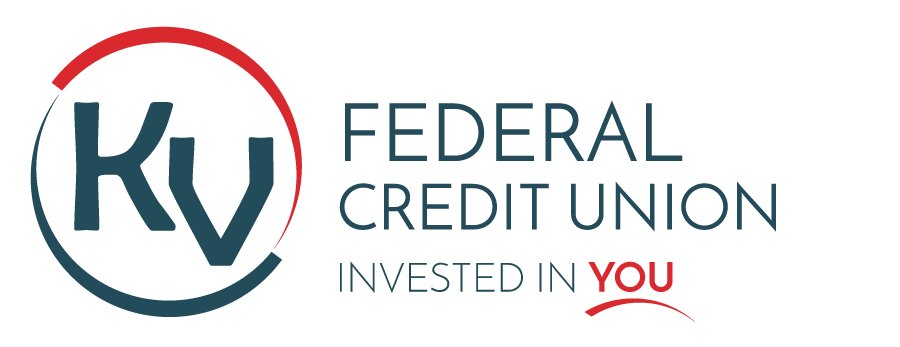What's Happening at KVFCU?
Protect Your Date From Third-Party Aggregator Services
Are you using a personal finance app to help manage your money? If you are, you aren’t alone.
Consumers across the country are increasingly turning to apps like Dave.com, RobinHood.com, CashApp, and countless others to monitor their spending. While these apps may provide a platform for viewing and working with multiple accounts, they also increase the risk of having financial information breached. In fact, a recent breach at Waydev affected 7.5M consumers.
If you are leveraging any of these tools, there are some important steps you can take to protect your personal information.
Examine the terms of service for apps you are using.
Review the app’s data retention policies and determine whether the app resells your information.
Find out what security features the app offers to ensure your personal information remains safe.
Look for things like two-factor authentication.
Always confirm the validity of the app.
Don’t provide your account numbers or any personal or financial information on the phone or online unless you initiate the conversation and you know the organization.
Change your passwords and security settings often and use a highly secure password for your financial accounts.
Secure passwords often contain letters, numbers, and special characters.
Avoid using the same username and password on multiple sites.
Guard your pins and passwords. Don’t store them on your phone or write them down in a location where others might be able to access them.
Change your credit union and other account passwords if you want to remove an app’s access to your accounts.
Contact us right away if you feel your information has been compromised!
Always use extreme care when using third party apps. The more services you sign up for and the more devices you use provides criminals additional opportunities to steal your information for their personal gain.
All KVFCU Lobbies are Now Open!
We are very excited to reopen our branch lobbies to our members! We have missed you.
A few important notes:
1. Please check our branch hours here: https://kvfcu.org/contact-us
2. Please read our NEW Covid-19 procedures here: https://kvfcu.org/new-procedures
We appreciate and thank you for being patient, kind, courteous and for helping us keep our members and staff safe and well.
KVFCU Loan Help
We want to help our members navigate the financial challenges that lie ahead during these unprecedented and extraordinary times due to COVID-19. The economy is going through some unexpected and dramatic changes and it is all happening very quickly. Unfortunately, the consequence are loss of income for many families due to reduced hours, job losses, layoffs and loss of revenue for business owners.
We are offering the following options to help our members:
Skip Payments and Loan Deferments at no charge
Loan modifications or refinancing options
Short term Signature Loans of up to $4,000.00 with the first payment deferred up to 3 months
Call one of our offices and ask for a loan officer. They will be able to help assess your particular situation and work with you to find the best solution. We will do everything we can to be flexible and find the right solution for you.
Augusta: (207) 623-5171
Oakland: (207) 465-4423
Waterville: (207) 877-9474
Best Regards,
Christine Devine
President/CEO
Coronavirus Scams
Criminals are contacting individuals and claiming to work for the World Health Organization (WHO) to solicit data. If you or a member is contacted by a representative claiming to be with WHO, verify their authenticity before responding and remember, the WHO will never:
Ask you to login to view safety information
Email attachments you didn’t ask for
Request you visit a link outside of www.who.int
Charge money to apply for a job, register for a conference, or reserve a hotel
Conduct lotteries or offer prizes, grants, certificates, or funding through email
Ask you to donate directly to emergency response plans or funding appeals
WHO also is warning the public about email phishing scams that ask people to provide personal information, click a suspicious link, and/or open a malicious attachment. According to its website, WHO will not transmit email from addresses ending in ‘@who.com,’ ‘@who.org,’ or ‘@who-safety.org.’ The organization also is encouraging people to visit their website instead of clicking links in emails.
The Federal Trade Commission is warning consumers to ignore online offers for vaccinations or cures claiming they can prevent the Coronavirus. Consumers also should do their homework before making donations to charities or crowdfunding sites to confirm the legitimacy of the organization, and never wire money or send gift cards.
The U.S. Securities and Exchange Commission is encouraging people to be cautious about investment opportunities in companies claiming “the products or services of that publicly-traded companies can prevent, detect, or cure coronavirus.”
Remember, criminals prey on peoples’ vulnerabilities and they pay attention to news headlines. By staying diligent and communicating about these latest threats with our members, credit unions can help prevent fraudulent activity.
